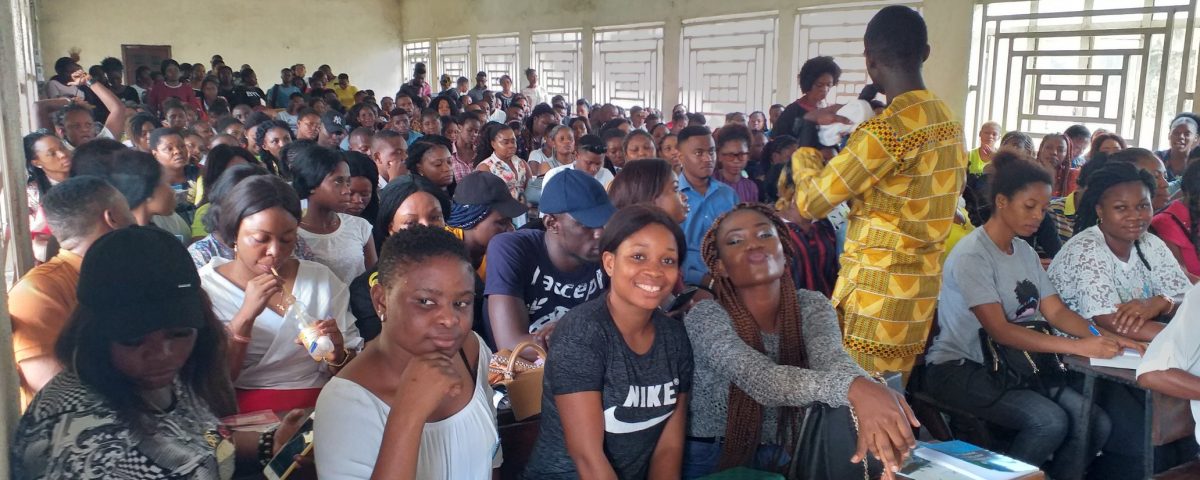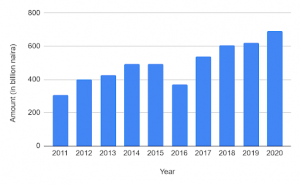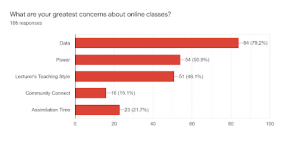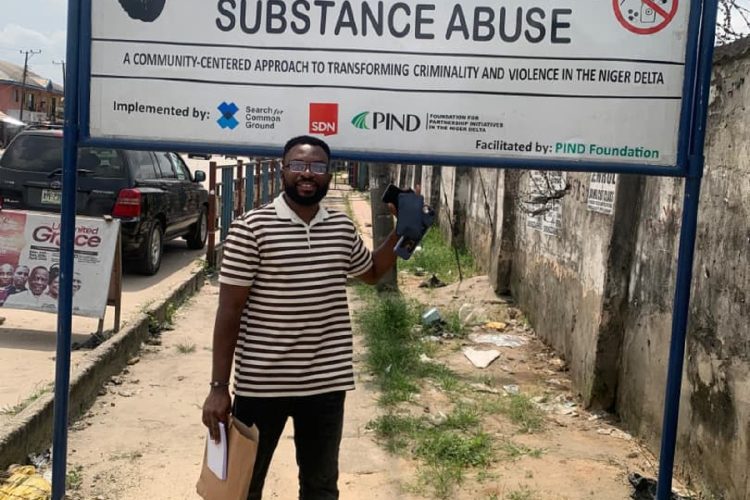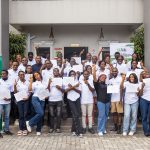
DFC Health and Prosperity Initiative Call for Proposals
June 11, 2020
Piracy and Sea Robbery in Rivers State – June 14-20, 2020
June 19, 2020
POLICY MEMO (Stanford/MIT COVID-19 Policy Hackathon)
To: Adamu Adamu, Honourable Minister of Education, Nigeria
From: Ebenezar Wikina, Chimdi Chukwukere, Comfort Onyaga, Kehinde Adebiyi, Oteheri Akinruntan [Team 91]
Date: 6/14/2020
Re: Nigeria’s Public Education in a Post-COVID World: Strategies for Inclusive Learning in Tertiary Institutions
_________________
Executive Summary
In Nigeria, the COVID-19 pandemic has further widened the digital divide between public and private tertiary institutions. To close this gap, key digital learning constraints like access to devices, lack of constant power supply, and high cost of reliable internet need to be addressed. There’s also a need to lobby for an increase in the national education budget and enact policies that mainstream education technologies in public institutions. With a youth unemployment and underemployment rate of over 55.4%, keeping young people at home without a definite engagement plan can only spell disaster for Nigeria.
Background and Context
The Federal Ministry of Education announced the temporary closure of all schools in Nigeria, effective March 23rd, in a bid to contain the spread of the coronavirus (FME, 2020). The Learn from Home Program (LHP) designed by the Ministry in April 2020 was focused on a small percentage of public secondary students leaving millions of students in public tertiary institutions stranded for over 3 months.
Fig 1: Nigeria’s Education Budget, 2011-2020 (Source: Nigerian Bureau of Statistics)
Inadequate funding has been identified as one of the main hindrances to growth in Nigeria’s public education sector (Rowell & Money, 2018). In Figure 1, at face value, it may appear that the education budget has relatively increased over the years, however, Figure 2 puts it into perspective.
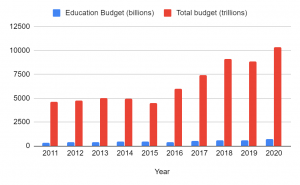 Fig 2: Education Budget vs Total Budget, 2011-2020 (Source: Nigerian Bureau of Statistics)
Fig 2: Education Budget vs Total Budget, 2011-2020 (Source: Nigerian Bureau of Statistics)
Despite UNESCO’s recommendation for developing countries to allocate 15% to 20% of their national budgets to education (UNESCO, 2015), Nigeria has not allocated more than 8% in the past ten years.
Evidence + Analyses
Using google forms, we leveraged Facebook, Telegram, and WhatsApp groups filled with Nigerian students and lecturers to run randomized anonymous surveys on the key constraints to virtual learning and instruction faced by both target groups. Within 18 hours (after the start of the hackathon) we received a total of 134 responses from the targeted sample – 106 responses from students and 28 responses from lecturers.
Fig 3: Nigerian Students responses on key constraints to online learning (Source: Team 91 Survey Findings)
Our study showed that the leading concerns for students’ access to virtual learning are data (79.2%) and Power supply (50.9%) thus underscoring the points earlier made about these constraints. Many students (48.1%) also attributed Lecturer’s teaching style as a hindrance which is understandable, knowing that for many lecturers in Nigeria, the COVID-19 lockdown was their first contact with virtual conferencing software thus they didn’t have the required digital literacy to deliver content through these platforms.
Similarly, 83.3% of lecturers affirmed that access to cheap and reliable internet data has been a challenge for them while 87.5% attributed poor electricity supply as a major impediment to virtual instruction.
Fig 4: Responses highlight the lack of students’ willingness to continue online academic work (Source: Team 91 Survey Findings)
Only 6.6% of students are very convenient with digital learning, with 93.4% fairly/not convenient with it. In addition to this, 63.2% of student respondents do not wish to continue academic work online while 36.8% were willing to continue. This doesn’t come as a surprise because the key constraints stacked up against them make it difficult to learn online successfully.
Proposed Recommendations + Next Steps
- Lobby National Assembly to increase the Education budget. The Honourable Minister of Education (HMoE) should achieve this by working closely with the Presidency as well as the House and Senate Committees on Education in the National assembly to increase the education allocation for 2021 to 10%, and then steadily grow the percentage upwards moving forward.
- In a situation where the Executive is unable to make funding increments, the HMoE should explore partnerships with the private sector and international donors to access funding for the Ministry’s development activities.
- Establish community learning hubs by equipping local libraries with required digital devices, renewable energy supply, and free internet data. This will help to address the constraints we identified during our study. The proposed Community Learning Hubs will also help to revitalize Nigeria’s dying local libraries and can mirror the technology hub model in the Startup community. Considering its potential impact, this will leave a legacy for the HMoE.
- This should be implemented immediately, especially in rural communities with a high population of vulnerable young people.
- Advocate for the implementation of the National Broadband Masterplan (NBM). The implementation of the NBM will help to provide fast and affordable internet across the country.
- The HMoE should ensure that the NBM (2020-2025) remains on the agenda of the Federal Executive Council by engaging relevant government officials saddled with the task of bringing the plan to fruition.
- Enact policies and programs that support indigenous Education Technology (EdTech) Providers. Currently, most of the digital content used for virtual learning programs in Nigeria are foreign and do not match the typical Nigerian student.
- The HMoE should design an EdTech program to identify organizations that will build local solutions and provide them with tax havens, conditional loans, and grants.
- Incorporate Digital Literacy programs in School Curriculum and Teacher Training Programs. This will help to prepare instructors as well as students for the new era of learning by ensuring they gain the required skills to use digital learning platforms.
- Technology giants Facebook and Google currently have free digital literacy programs that can be adapted for Nigeria.
(See Annex for Implementation Workplan & timelines)
Urgency Statement
Being the World’s Poverty Capital (Brookings Institute, 2018) with more than half of its youth unemployed or underemployed (Nigerian Bureau of Statistics, 2019), Nigeria cannot continue to let education take the backseat. The Honourable Minister must champion the digital revolution in Nigeria’s public education sector to avert the impending doom.
Download PDF version below to see Implementation Workplan, Theory of Change, References, and Annex


